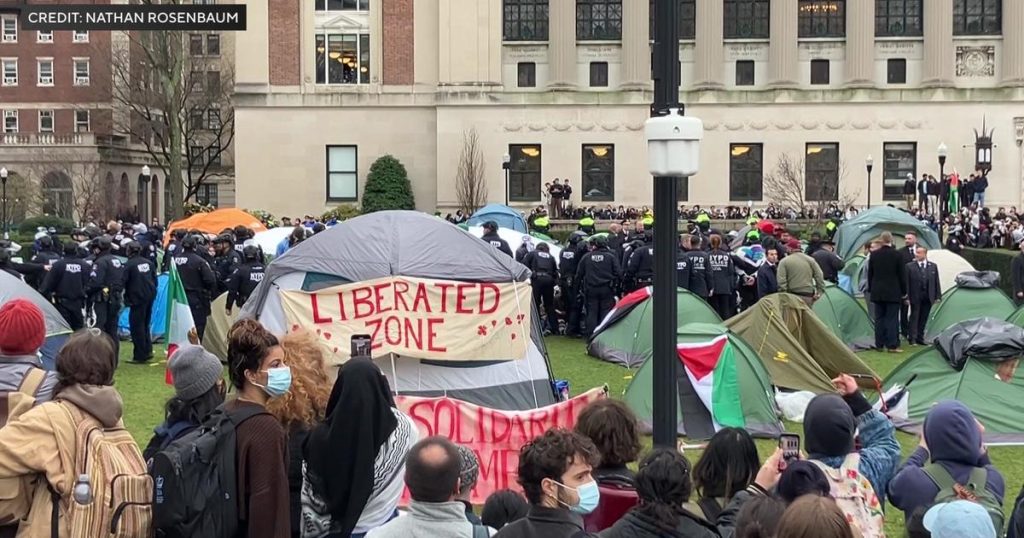Students at Columbia University set up an unsanctioned encampment on the university’s main lawn in Upper Manhattan, leading to police involvement and arrests on the second day of demonstrations. NYPD officers in riot gear closed the street and removed students from the encampment, detaining them on buses before taking them to the precinct. The university president, Minouche Shafik, requested NYPD assistance, citing concerns about the disruption caused by the encampment. Students participating in the encampment were warned to leave by a certain time, and those who did not comply were suspended from the university.
The demonstrations at Columbia University were a result of tensions between pro-Palestinian and pro-Israel groups on campus, with individuals expressing discontent with how the police handled the situation. Some protesters accused the police of escalating the situation and blocking their rights. The protests intensified on the second day, leading to further arrests and confrontations outside the campus gates. The students involved in the protests, including Isra Hirsi, the daughter of Rep. Ilhan Omar, pledged to continue demonstrating until their demands were met. The protests occurred amid accusations of antisemitism and concerns about freedom of expression on campus.
The demonstrations at Columbia University coincided with president Minouche Shafik’s testimony on Capitol Hill, where she was accused of failing to discipline students for antisemitic rhetoric. Protesters criticized the university for not prioritizing student rights, voices, or safety, with some individuals expressing fear of wearing Jewish symbols on campus. The majority of protesters involved in the demonstrations were not Columbia students, indicating a wider impact of the protests beyond the university community. The protests underscored ongoing tensions related to the Israeli-Palestinian conflict and freedom of expression on college campuses.
Despite efforts by the university administration to resolve the situation peacefully, the protests continued and intensified, leading to confrontations with the police and subsequent arrests. The encampment on the university’s main lawn challenged the established rules and regulations, prompting the administration to seek assistance from the NYPD to remove the individuals involved. The decision to suspend students participating in the protests highlighted the university’s commitment to maintaining order and ensuring the safety of all members of the community. The protests at Columbia University raised questions about the limits of political expression on campus and the role of law enforcement in managing such demonstrations.
Overall, the incident at Columbia University highlighted the complex dynamics surrounding political expression, freedom of speech, and campus activism. The protests, arrests, and suspensions reflected broader issues related to the Israeli-Palestinian conflict, antisemitism, and student activism. The involvement of outside groups and individuals added a layer of complexity to the situation, demonstrating the interconnected nature of campus politics and global conflicts. Moving forward, the university administration will need to address the underlying issues raised by the protests and work to create a more inclusive and respectful environment for all students. The incident serves as a reminder of the challenges universities face in balancing freedom of expression with maintaining a safe and productive learning environment for all members of the community.


